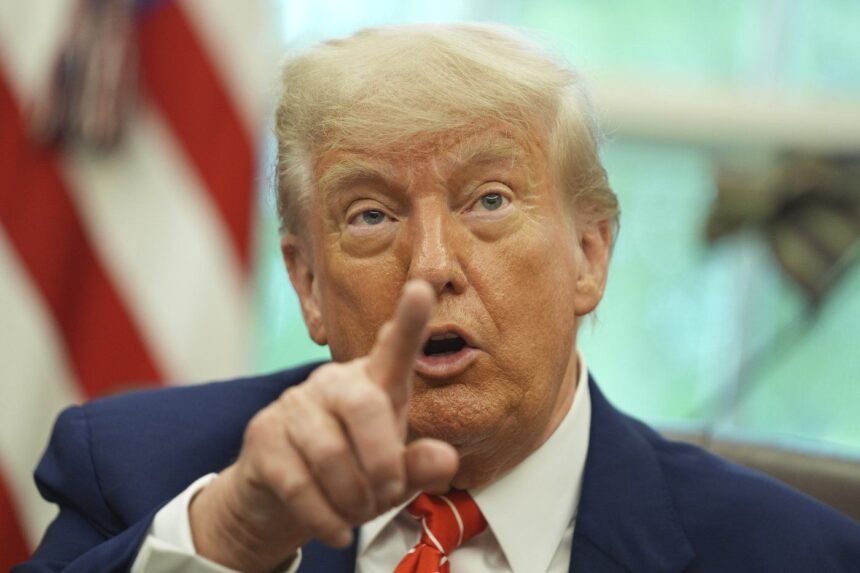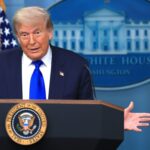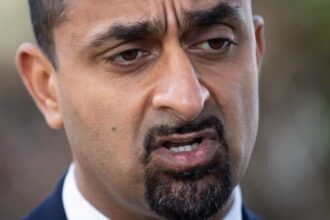In a dramatic escalation of tensions between neighboring allies, former President Donald Trump has threatened to terminate trade negotiations with Canada if the Trudeau government proceeds with its controversial digital services tax. The confrontation marks a potential return to the combative trade stance that characterized Trump’s first administration, sending ripples through financial markets and diplomatic circles alike.
“Canada’s digital tax is nothing but a direct attack on American innovation and success,” Trump declared during a campaign rally in Michigan yesterday. “If Trudeau doesn’t back down immediately, I’ll cut off all trade talks the day I return to office. America won’t be taken advantage of anymore.”
The digital services tax, set to take effect January 1, would impose a 3% levy on revenue generated by large tech companies operating in Canada, primarily affecting U.S. giants like Google, Amazon, and Facebook. Canadian Finance Minister Chrystia Freeland has defended the measure as necessary to ensure digital companies “pay their fair share” while creating a level playing field for Canadian businesses.
Economic analysts at the Royal Bank of Canada estimate the tax could generate approximately CAD $4.2 billion in revenue over five years, but warn of potential retaliatory measures that could cost the Canadian economy significantly more.
“This is a dangerous game of chicken,” explains Dr. Eleanor Weston, Professor of International Trade at the University of Toronto. “While Canada has legitimate concerns about tax avoidance by tech giants, the timing couldn’t be worse given Trump’s rising polling numbers and his history of trade aggression toward Canada.”
The dispute resurrects memories of the tense NAFTA renegotiations during Trump’s first term, when he repeatedly threatened to tear up the agreement entirely before eventually reaching the USMCA deal. That agreement is scheduled for its first formal review in 2026, adding additional pressure to resolve the digital tax standoff.
Canadian business leaders have expressed concern about potential fallout. The Business Council of Canada issued a statement urging the government to “carefully weigh the benefits of the digital tax against the risks of American retaliation, particularly in sectors like automotive manufacturing and agriculture.”
Meanwhile, the Biden administration has maintained a more measured approach, continuing trade discussions while expressing “serious reservations” about Canada’s tax plans through diplomatic channels. However, State Department officials speaking on background acknowledge that a potential second Trump presidency could dramatically alter the relationship.
Canadian officials maintain they’ve designed the tax to comply with international standards and note similar measures have been implemented by France, Italy, and the UK. However, critics point out these countries don’t share a border or the deep economic integration that defines the U.S.-Canada relationship.
“Approximately 75% of Canadian exports go to the United States, while only 18% of U.S. exports come to Canada,” notes trade economist Patricia Sandoval. “The asymmetry gives the U.S. significant leverage in any dispute, regardless of which administration is in power.”
As both countries prepare for potential policy shifts, businesses on both sides of the border are developing contingency plans. Tech companies have warned of potential service reductions in Canada, while Canadian exporters are diversifying their customer bases where possible.
What remains unclear is whether this represents typical campaign rhetoric or a genuine policy position that would translate into action should Trump return to office. Either way, the controversy underscores the perpetual challenge Canada faces: balancing sovereign policy objectives against the economic reality of living next door to the world’s largest economy.
As this dispute unfolds against the backdrop of shifting global trade patterns and digital economy transformation, we must consider: How can middle powers like Canada effectively assert their tax sovereignty while maintaining crucial economic relationships with superpowers in an increasingly digitalized world?


















